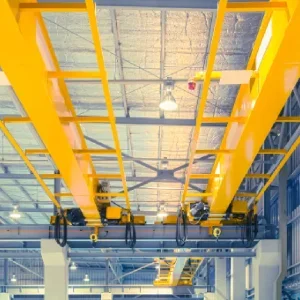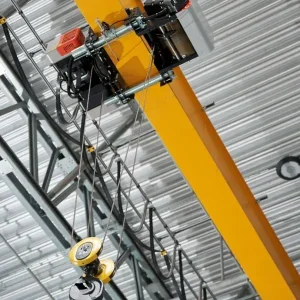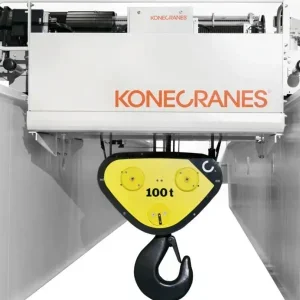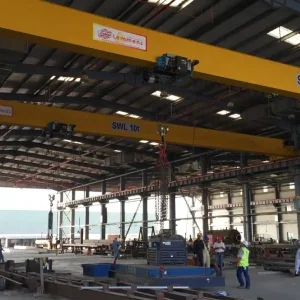
“Interface is a very diverse company,” Ken Bishop, Interface’s senior director of custom solutions, declared, noting that it has a very strong reputation for producing high-quality load cells, load pins, load shackles, torque transducers, multi-axis sensors and related measurement solutions for a variety of market sectors including aerospace, automotive, energy, factory automation and subsea marine. “Given our ability to make high-precision products that our customers can count on, we have been able to grow our business over the years.”
Bishop said it was when certain new customer requirements emerged, for which Interface didn’t have other options to meet, that it decided to reach out to LCM: “At first such opportunities came up now and then, but over time we started to do more business with them as it became more and more apparent that there was a nice fit between the products and services that LCM offers and those offered by Interface.”
LCM was founded in 1984 to provide the yachting industry with precision load cell and readout systems, but has expanded to also provide those products, as well as engineering and design services, to such other market sectors as energy, civil engineering, maritime, aerospace, heavy lifting and process engineering, including load cell products suitable for Zone 1 and 2 hazardous area applications.
“Hoisting and lifting is a big part of both of our businesses,” Bishop said, adding: “That is where LCM originated from, and over the past ten years Interface moved much more into it because of our partnership with LCM.”
In fact, he said that one reason that Interface pursued its partnership with LCM is its expertise in certain safety standards that companies involved in lifting and hoisting must meet. For example, LCM has APICS certification from the Association for Supply Chain Management (ASCM).
“Our customers need to do lifting and hoisting because a lot of things that they measure and test are heavy,” Bishop explained, adding: “Our customers were regularly coming to us for solutions, which is why we developed this business relationship with LCM.”
He also noted another selling point is LCM’s expertise in customising load pins and other products. Bishop said it is because LCM is such a successful company, that they are so great at what they do, was Interface’s motivation to not just continue to partner with LCM, but to actually acquire it.
“Our vision is to provide LCM with the support they need to grow without interfering with the way they do their daily business,” Bishop said. “They know what they are doing. They have experts in every part of the business. We don’t want to interrupt what they are doing, but rather to help them financially so they can remain independent and successful.”
Its acquisition of LCM has also given Interface’s customers greater access to LCM’s products and the ability to get them directly from Interface’s sales office next to its manufacturing plant in Scottsdale, Arizona, which is helpful for customers who have been hesitant to buy products from an overseas company. “Also, if a customer wants us to stock products here, we can do that as well,” he said, noting that while it now owns LCM, Interface is actually acting more as a liaison.
“The Interface management team remains separate from the LCM management team,” he said. “We don’t want to change how LCM has been successful over the years. We can share knowledge, but we are not imposing the Interface way of doing business upon LCM and vice versa. We will continue to operate as two separate entities,” Bishop said.
Interface is, however, planning to help LCM to make some investments to increase its production capacity in an effort to both bring more business into LCM and to enable them to shorten their lead times. While LCM could eventually increase its production capacity by 10%, which would enable it to shorten its lead times to about four to seven weeks from seven to ten weeks currently, such increases in production capacity will likely be incremental, aligned with demand for its products.
At this point Interface isn’t planning to make any further acquisitions, but rather continue to concentrate upon maximising its relationship with LCM and to do everything it can to grow its sales at both companies.
By Myra Pinkham






